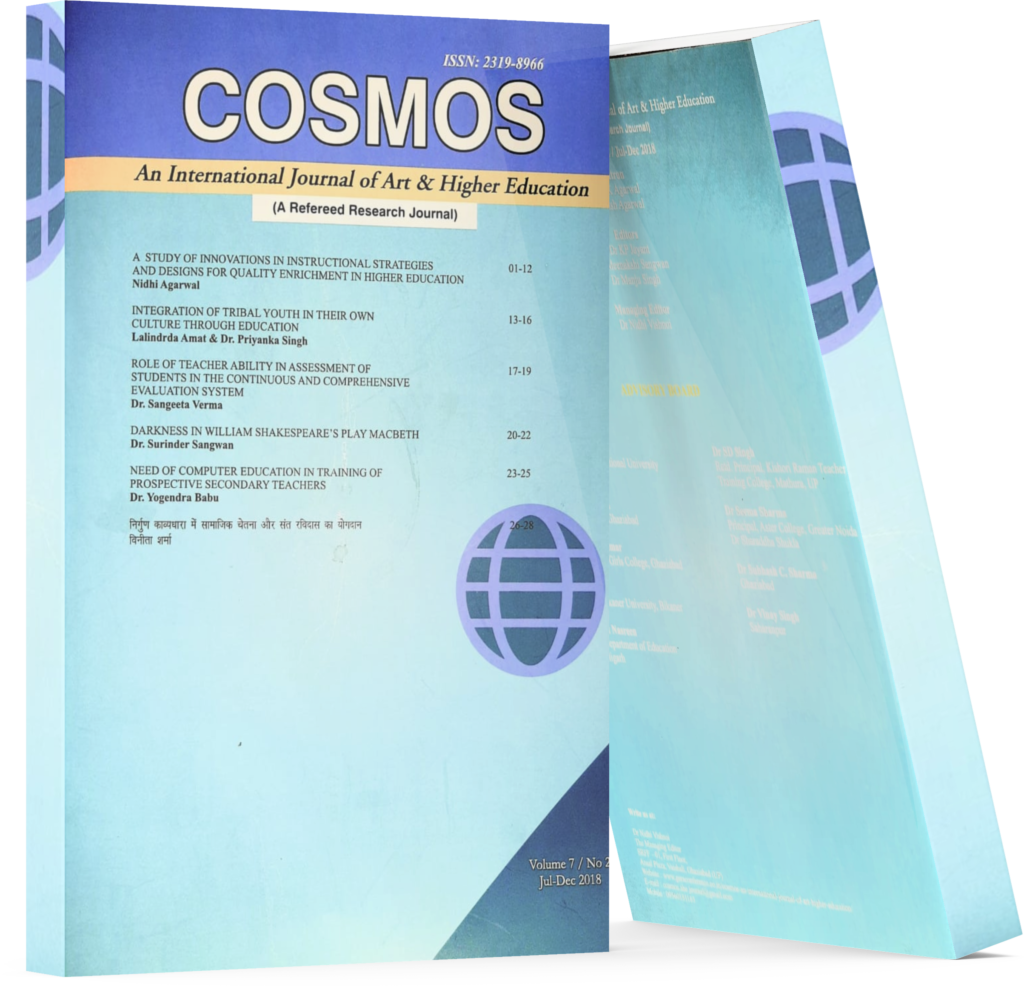Prospects Of Online Mode Of Learning In Post Pandemic Times: A Study Amongst The Students Of Silchar City In Assam
Keywords:
COVID 19, Online Education, Premier Colleges, Learning and Work from HomeAbstract
The recent debacle that countries across the globe have witnessed during COVID 19 brought about devising of new strategies and mode of functioning for different professions. Amongst the new mode of functioning ‘work from home’ for IT professionals and ‘imparting online classes’ for the students have been the most common. But along with the compulsive acceptance, there have also been sporadic views of the stakeholders of these professions on the efficacy of the new norm of working. There cannot be a denial to the fact that the role of digital domain of performing the job has been accentuated during the period. In a response to the changing mindset of the people, the study was conducted to evaluate the views of the recipients of online education on the efficacy of the same. The responses for the study were collected from the students of three premier colleges in Silchar. The responses were collected from three groups of respondents who are currently pursuing the final year of their study in the colleges. The groups are identified based on three different streams: Arts, Commerce and Science. Therefore, in selecting the sample respondents, cluster random sampling was followed. The study attempted to achieve two-fold objectives: one was to determine the variation in the responses regarding the efficacy of online education across three different streams and the other was to determine the variation in the responses regarding the efficacy of online education across the three different colleges. In analyzing the responses, ANOVA was used as a statistical tool. The major finding of the study revealed that there exist significant variations amongst the responses of students for the three different streams and was discovered that there is a greater acceptance amongst the students of Science stream regarding online education as compared to the other two streams. It was also discovered that there exist significant variations amongst the responses of students across the three different colleges and among the three colleges considered, Gurucharan College tend to have a greater acceptance towards online education.
Downloads
References
Anderson, J., (2005). “IT: E-learning and Teacher Development”, International Educational Journal. 5(5), 1-14.
Aparicio, M.T., et al, (2016). “An e-Learning Theoretical Framework”. J. Educ. Technol. Soc., 19, 292-307.
Baiyere, A. and Li, H., (2016). “Application of a virtual collaborative environment in a teaching case”. In AMCIS: Surfing the IT
Innovation Wave - 22nd Americas Conference on Information Systems.
Bates, T., (2020). “Crashing into online learning: A report from five continents-And some conclusions”, Tony Bates. Available online: https://www.tonybates.ca/2020/04/26
/crashing-into-online-learning-a-report-from fivecontinents and-some-conclusions/.
Dron, J. and Anderson, T., (2016). “The future of e-learning”, In The Sage Handbook of E Learning Research; Haythornthwaite, C.A., Ed.; SAGE Reference: Los Angeles, CA, USA, pp. 537-556. ISBN 978-1-4739-0232-9.
Garrison, D.R., (2009). “Blended Learning a Transformative Design Approach”, In Encyclopedia of Distance Learning; Rogers, P.L., Ed.; Information Science Reference: Hershey, PA, USA, pp. 200-204. ISBN: 978-1- 60566-198-8.
Misko, J., Choi, J., Hong, S. & Lee, I., (2004). “E-learning in Australia and Korea: Learning from practice”, Korea Research Institute for Vocational Education and Training, Seoul, NCVER, Adelaide.
Noor-Ul-Amin, S., (2013). “An effective use of ICT for education and learning by drawing on worldwide knowledge”, Research and Experience: ICT as a change agent for education". Scholarly Journal of Education, 2(4), 38-54.
Rodrigues, H., et al, (2019). “Tracking e learning through published papers: A systematic review”. Comput. Educ., 136, 87-98.
Sangrà, A., et al, (2012). “Building an inclusive definition of e-learning: An approach to the conceptual framework”. Int. Rev. Res. Open Distrib. Learn. 13, 145-159.
Soni, V.D., (2020). “Challenges and Solution for Artificial Intelligence in Cyber security of the USA”. Available at SSRN: https://ssrn.com/abstract=3624487 or http://dx.doi.org/10.2139/ssrn.3624487.

